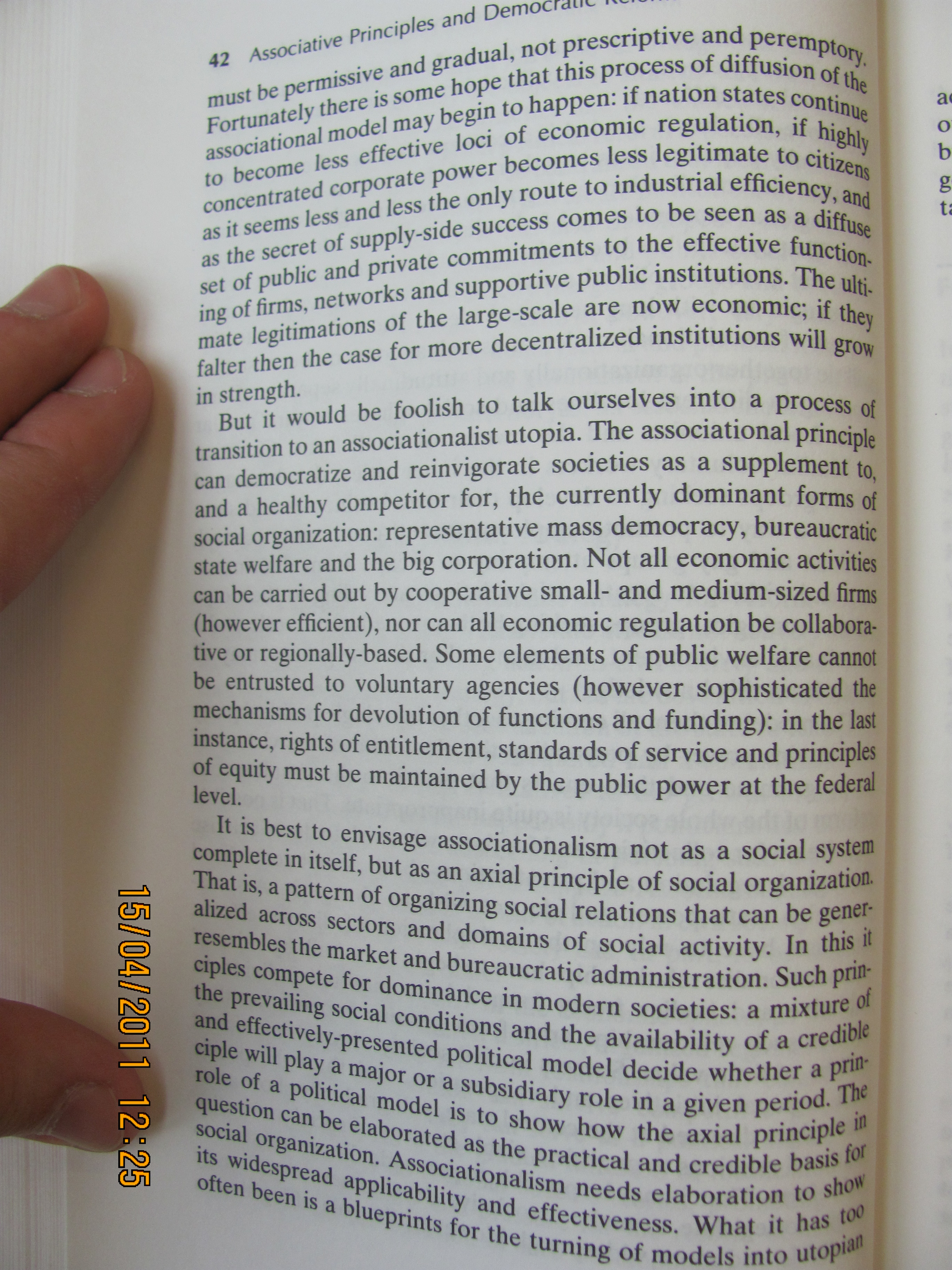16826 IMG#30

42 Associative Principles and Democrau^.
must be permissive and gradual, not prescriptive and peremptory f Fortunately there is some hope that this process of diffusion of the a, associational model may begin to happen: if nation States continue o to become less effective loci of economic regulation, if highly { b concentrated corporate power becomes less legitimate to citizens g as it seems less and less the only route to industrial efficiency, and t t; as the secret of supply-side success comes to be seen as a diffuse set of public and private commitments to the effective function* ing of firms, networks and supportive public institutions. The ulti-mate legitimations of the large-scale are now economic; if they falter then the case for morę decentralized institutions will grow
But it would be foolish to talk ourselves into a process of I transition to an associationalist utopia. The associational principle I can democratize and reinvigorate societies as a supplement to,
■ and a healthy competitor for, the currently dominant forms of social organization: representative mass democracy, bureaucratic State welfare and the big Corporation. Not all economic activities can be carried out by cooperative smali- and medium-sized firms (however efficient), nor can all economic regulation be collabora-f tive or regionally-based. Some elements of public welfare cannot be entrusted to voluntary agencies (however sophisticated the mechanisms for devolution of functions and funding): in the last instance, rights of entitlement, standards of service and principles of equity must be maintained by the public power at the federal I level.
It is best to envisage associationalism not as a social system complete in itself, but as an axial principle of social organizatioo.
^ That is, a pattem of organizing social relations that can be gener-i <250 alized across sectors and domains of social activity. In this it
|| resembles the market and bureaucratic administration. Such prin*
ciples compete for dominance in modern societies: a mixture of the prevailing social conditions and the availability of a credibte V (S) anc* effectively-presented political model decide whether a pilnej cipie will play a major or a subsidiary role in a given period. The
^ role of a political model is to show how the axial principle m
.—ąuestion can be elaborated as the practical and credible basis for social organization. Associationalism needs elaboration to sho^
0^ its wi^espread applicability and effectiveness. What it has too
(Z5a] often been is a blueprints for the turning of models into utopii |
Wyszukiwarka
Podobne podstrony:
IMG#10 22 Associative Principles and Democratic Reform public power and of the devolved associationa
IMG#14 26 Associative Principles and Democratic Reform democratic naturę of the ‘primary association
IMG#20 32 Associative Principles and Democratic Reform Laski in ‘The Problem of Administrative Areas
IMG#08 20 Associative Principles and Democratic Reform yoluntary associations in order to do so. Ass
88880 IMG#28 40 Associative Principles and Democratic Reform democracy as communication have the adv
82043 IMG#22 34 Associaftve Principles and Democratic Reform contradśction with centralized, bureauc
83038 IMG#16 28 Associative Principles and Democratic Reform a pleni tude of power and the right to
IMG#16 28 Associative Principles and Democratic Reform a pleni tude of power and the right to exerci
więcej podobnych podstron